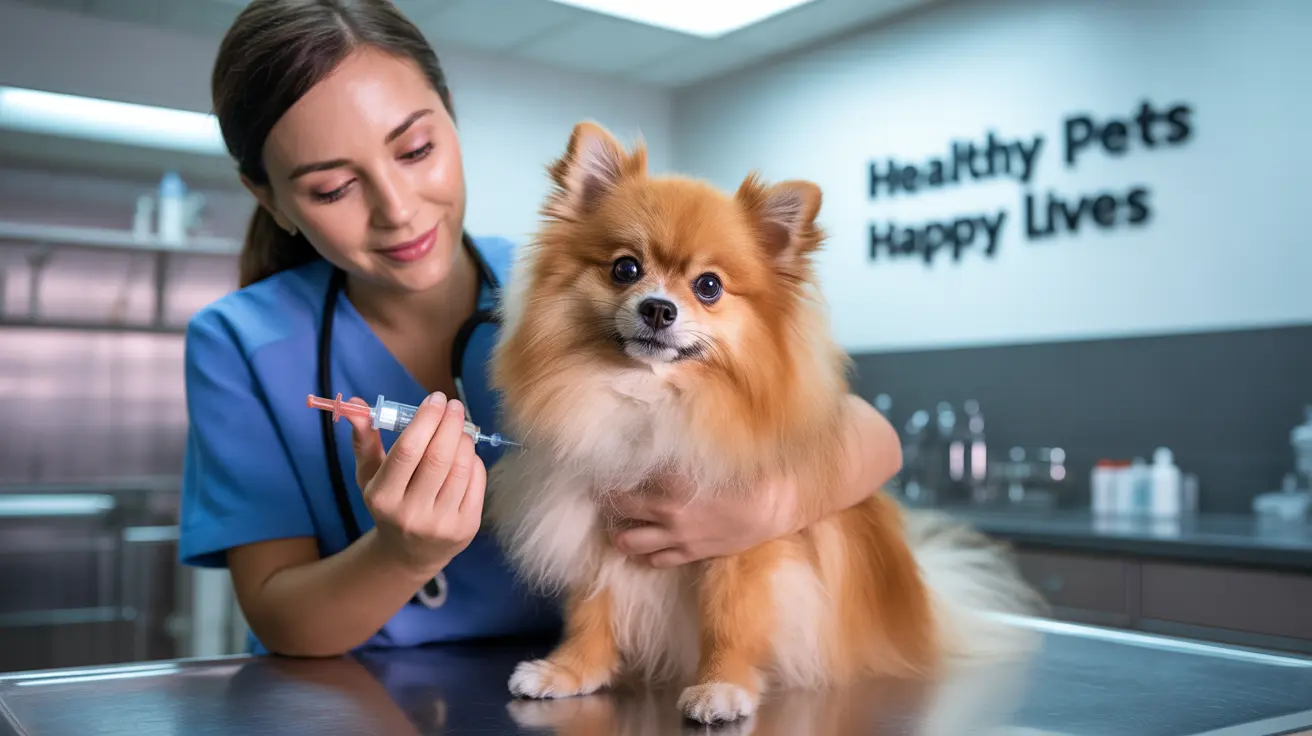When it comes to protecting your canine companion from serious bacterial infections, the leptospirosis vaccine for dogs plays a crucial role in preventing this potentially life-threatening disease. As a responsible pet owner, understanding the effectiveness and importance of this vaccination can help you make informed decisions about your dog's health care.
Leptospirosis is a dangerous bacterial infection that can affect both animals and humans, making it particularly concerning for pet owners. The vaccine has become an essential tool in veterinary medicine, offering significant protection against multiple strains of the bacteria.
How the Leptospirosis Vaccine Works
The leptospirosis vaccine for dogs works by stimulating the immune system to produce antibodies against specific strains (serovars) of Leptospira bacteria. Modern vaccines typically protect against four main serovars: Canicola, Icterohaemorrhagiae, Grippotyphosa, and Pomona.
Clinical studies have shown that vaccinated dogs develop strong immunity within a few weeks after completing the initial vaccination series. This protection helps prevent severe illness and reduces the risk of spreading the infection to other animals or humans.
Vaccine Effectiveness and Duration of Protection
Research indicates that the leptospirosis vaccine for dogs provides approximately 84% protection against clinical disease and 88% protection against mortality. However, it's important to note that the vaccine's effectiveness can vary depending on several factors, including:
- The specific serovars present in your geographic area
- Your dog's overall health and immune system
- Proper timing and administration of booster shots
- Environmental exposure risks
Unlike some other canine vaccines that provide multi-year protection, the leptospirosis vaccine requires annual boosters to maintain optimal immunity levels. This is due to the nature of the bacterial infection and the way the immune response works against Leptospira.
Understanding Vaccination Risks and Side Effects
While the leptospirosis vaccine for dogs is generally safe, some dogs may experience mild side effects. Most reactions are minor and short-lived, typically resolving within 24-48 hours. Common side effects include:
- Mild lethargy or tiredness
- Temporary loss of appetite
- Slight swelling at the injection site
- Mild fever
More serious reactions are rare but can occur, particularly in smaller breeds or dogs with sensitive immune systems. Your veterinarian will help assess your dog's individual risk factors and determine if vaccination is appropriate.
Making an Informed Vaccination Decision
When considering the leptospirosis vaccine for dogs, evaluate your pet's lifestyle and risk factors. Dogs with higher exposure risk include those who:
- Frequently swim or play in standing water
- Have access to wooded areas or wildlife
- Live in or visit areas with high rainfall
- Regularly interact with other dogs in shared environments
Consulting with your veterinarian about local disease prevalence and your dog's specific needs will help you make the best decision regarding vaccination.
Frequently Asked Questions
How effective is the leptospirosis vaccine for dogs in preventing the disease?
The leptospirosis vaccine is highly effective, providing about 84% protection against clinical disease and 88% protection against mortality. However, effectiveness depends on proper administration and annual boosters.
What are the common side effects of the leptospirosis vaccine in dogs?
Common side effects include temporary lethargy, reduced appetite, mild swelling at the injection site, and occasional fever. Most side effects resolve within 24-48 hours.
Why is annual vaccination for leptospirosis recommended over every three years?
Annual vaccination is necessary because immunity against Leptospira bacteria wanes more quickly compared to other diseases. Regular boosters ensure consistent protection levels throughout the year.
Can dogs still contract leptospirosis even if they are vaccinated?
While vaccination significantly reduces the risk, no vaccine is 100% effective. Vaccinated dogs can still contract the disease, though they typically experience milder symptoms and have better outcomes.
How does the leptospirosis vaccine help reduce the risk of transmission to humans?
The vaccine reduces the likelihood of dogs becoming infected and shedding bacteria through their urine, which is the primary way leptospirosis spreads to humans. This helps protect both pets and their families.
Understanding the importance and effectiveness of the leptospirosis vaccine for dogs can help you make informed decisions about your pet's health. While the vaccine isn't perfect, it provides significant protection against a serious disease that can affect both animals and humans.






